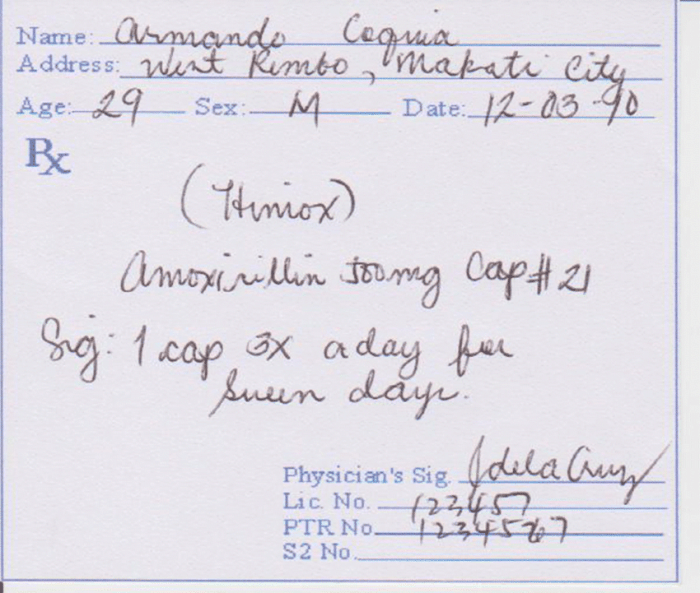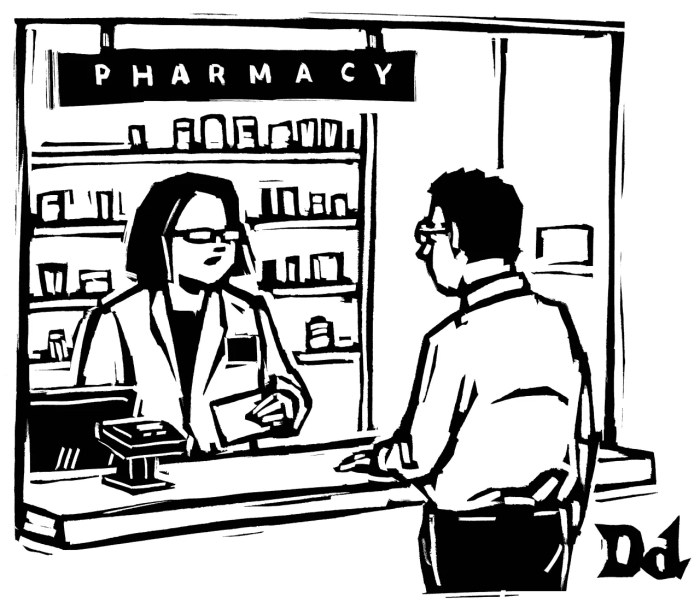Usted / esperar / receta del doctor – Navigating the medical realm can be daunting, especially when faced with unfamiliar terminology. Three crucial terms that often arise in patient communication are ‘usted’, ‘esperar’, and ‘receta del doctor’. Understanding their precise meanings and appropriate usage is essential for effective patient-provider interactions and optimal health outcomes.
This comprehensive guide delves into the nuances of these medical terms, highlighting their significance in conveying instructions, managing medications, and ensuring respectful communication. By exploring real-life examples and potential consequences, we aim to empower patients with the knowledge and confidence to navigate their healthcare journey with clarity and precision.
Medical Terminology: Usted / Esperar / Receta Del Doctor

In medical contexts, “usted” is a formal pronoun used to address patients, regardless of their age, gender, or social status. It is considered a respectful and professional way to communicate with patients, as it conveys respect and acknowledges their autonomy.
Examples of “Usted” Usage
- “¿Cómo se encuentra usted hoy?” (How are you feeling today?)
- “Le agradezco que haya venido hoy, señor/señora [Patient’s last name].” (Thank you for coming today, Mr./Ms. [Patient’s last name].)
- “Le voy a recetar un medicamento para ayudarle con su dolor.” (I am going to prescribe you a medication to help with your pain.)
Importance of Respectful Language
Using respectful language in medical settings is crucial for several reasons. First, it helps to establish a positive and trusting relationship between the patient and the healthcare provider. When patients feel respected, they are more likely to be open and honest about their symptoms and concerns, which can lead to better diagnosis and treatment outcomes.
Second, respectful language helps to reduce patient anxiety and fear. When patients are addressed in a respectful manner, they feel more comfortable and less intimidated, which can make it easier for them to participate in their own care.
Finally, using respectful language is simply the right thing to do. Patients deserve to be treated with dignity and respect, regardless of their circumstances.
Patient s

In the medical context, s that include the term “esperar” (wait) often involve adhering to specific timeframes or durations for various treatments, procedures, or recovery periods. These s are crucial for ensuring optimal patient outcomes and minimizing potential risks.
Importance of Following Doctor’s Orders
Following doctor’s orders is essential for several reasons. Firstly, medical professionals have the expertise and knowledge to determine the appropriate course of treatment and recovery for each patient. By adhering to their s, patients can trust that they are receiving the best possible care.
Secondly, waiting for specific periods allows the body to heal and recover properly. For example, after surgery, patients may be instructed to wait a certain amount of time before engaging in strenuous activities to avoid complications.
Consequences of Not Following Medical s
Not following medical s can have serious consequences. It can lead to:
- Delayed healing or recovery
- Increased risk of complications
- Need for additional treatment or procedures
- Permanent damage or disability
Therefore, it is crucial for patients to understand and follow their doctor’s s carefully. By doing so, they can maximize their chances of a successful recovery and minimize potential risks.
Medication Management

Medication management is crucial for maintaining optimal health and well-being. This involves adhering to healthcare providers’ instructions, ensuring proper dosage and frequency of medication intake, and understanding potential risks associated with prescription medications.
Prescription medications, commonly referred to as “receta del doctor,” are essential in treating various health conditions. They are prescribed by qualified healthcare professionals based on individual patient needs and medical history.
Importance of Taking Medications as Prescribed, Usted / esperar / receta del doctor
- Ensures optimal therapeutic effects: Taking medications as prescribed helps achieve the intended therapeutic benefits, managing symptoms and improving health outcomes.
- Minimizes side effects: Adhering to prescribed dosages and frequency reduces the risk of experiencing adverse side effects or drug interactions.
- Prevents resistance: Consistent medication intake prevents the development of resistance, ensuring the medication remains effective over time.
- Promotes recovery and well-being: Proper medication management supports the healing process, enhances quality of life, and promotes overall well-being.
Risks of Misusing or Abusing Prescription Medications
Misuse or abuse of prescription medications can lead to severe health consequences, including:
- Overdose and toxicity: Excessive medication intake can result in overdose, leading to life-threatening complications.
- Addiction and dependence: Misuse can lead to addiction, characterized by compulsive drug-seeking behavior and physical and psychological dependence.
- Organ damage: Long-term abuse can cause damage to vital organs, such as the liver, kidneys, and heart.
- Mental health issues: Misuse can exacerbate or trigger mental health conditions, including anxiety, depression, and psychosis.
Health Information

Health information encompasses a wide range of topics related to maintaining and improving one’s well-being. It includes guidance on various aspects of healthcare, such as disease prevention, diagnosis, treatment, and lifestyle management.
Understanding Health Information
Accessing and understanding health information is crucial for individuals to make informed decisions about their health. This information can be obtained from various sources, including healthcare professionals, reliable websites, and patient education materials.
It is essential to evaluate the credibility and accuracy of health information before relying on it. Reputable sources, such as government agencies, medical journals, and reputable health organizations, provide evidence-based and trustworthy information.
FAQ Insights
What is the significance of using ‘usted’ in medical settings?
Using ‘usted’ demonstrates respect for the patient’s dignity and autonomy, fostering a positive and collaborative healthcare environment.
Why is it crucial to follow doctor’s orders and wait for specific periods?
Adhering to medical instructions ensures proper medication administration, minimizes potential side effects, and promotes optimal treatment outcomes.
What are the potential risks of misusing or abusing prescription medications?
Misuse or abuse of prescription medications can lead to addiction, organ damage, and even life-threatening consequences.

